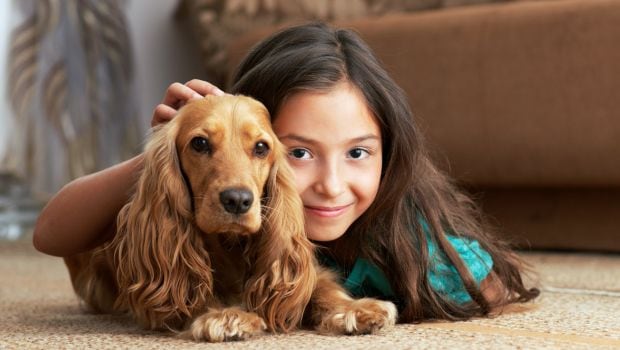Keeping Pets Could Be The Best Thing For Child Development

There’s no greater joy than coming home and finding an overly enthusiastic creature waiting to embrace you and show affection. Pets are the epitome of unconditional love. Their presence in the house brings the whole family together and puts an end to the blues. Imagine coming home after a tough day at work and seeing your dog wagging his tail excitedly at the sight of you. That instant you will find your sorrows vanish and the feeling of happiness seep in. No wonder dogs are known as man’s best friend. They are always there for you, no questions asked.
Keeping pets also help children in their growing up phase. They learn to be affectionate towards animals and find a sense of comfort. They almost become inseparable as they spend time together. Perhaps, in some cases, children develop a closer bond with their pets than their own siblings. According to a study done by University of Cambridge, kids get more satisfaction from relationships with their household pets than with their brothers or sisters.
“Anyone who has loved a childhood pet knows that we turn to them for companionship and disclosure, just like relationships between people,” said lead researcher Matt Cassells from University of Cambridge. “We wanted to know how strong these relationships are with pets relative to other close family ties. Ultimately this may enable us to understand how animals contribute to healthy child development,” added Cassells.

Researchers surveyed children of 12 years of age from 77 families with one or more pets of any type and more than one child at home. The children reported strong relationships with their pets relative to their siblings, with lower levels of conflict and greater satisfaction in owners of dogs than other kinds of pets.
Pets may not be able to utter a word but their actions speak louder than anything else. They can sense your mood and behaviour, and are like silent yet watchful guardians.
“Even though pets may not fully understand or respond verbally, the level of disclosure to pets was no less than to siblings. The fact that pets cannot understand or talk back may even be a benefit as it means they are completely non-judgmental,” Cassels noted.
While previous research had often found that boys report stronger relationships with their pets than girls do, the new research actually found the opposite.
“While boys and girls were equally satisfied with their pets, girls reported more disclosure, companionship, and conflict with their pet than did boys, perhaps indicating that girls may interact with their pets in more nuanced ways,” Cassels noted.
The research, published in the Journal of Applied Developmental Psychology, adds to increasing evidence that household pets may have a major influence on child development, and could have a positive impact on children’s social skills and emotional well-being.
[“source-ndtv”]



